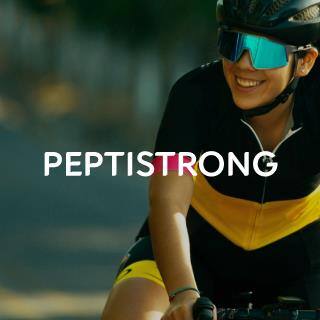An Important Approach during Heat-Stress Condition in Broilers
2020년 03월 16일
- Broiler
- Heat stress
- Low CP
6INTRODUCTION
Nutrition for broilers under high temperature is extremely important for the livestock industry in the tropics, because of the significant decrease in feed intake and consequent effect on overall production performance.Heat stress is one of the most important factors affecting the animal production traits such as carcass quality, feed efficiency, growth rate and most especially, mortality. A lot of intervention strategies are being considered to reduce the heat stress increment of the livestocks by either nutritional (feed additive addition, high levels of oil and other raw materials with low heat increment) or technological (tunnel ventilated housing facility, sprinkling and shading) means (Lara et al., 2013).
Recently, other innovative approaches have been explored, one of which is lowering the crude protein (CP) of the diet and considering other essential amino acids, aside from tryptophan, which include Methionine and Arginine. It is well known that animals reduce feed intake under heat stress conditions, thus, it is very important that even with low feed intake, the animals would be able to get the necessary nutrients that they need from highly digestible and absorbable sources. Compared to carbohydrates and fats, protein has the highest heat increment
and the negative effects of of high-protein diets on mortality rate may be associated with increased heat production, resulted from an increase in protein catabolism (Ghasemi et al., 2013).
Amino Acid Supplementation during Heat Stress Condition
It is very important to consider that the animals under heat stress condition has lower amino acid digestibility. According to Furlan et al. (2004), broiler chickens under heat stress during the growing phase had reduced rate of arginine absorption, which suggests that the ideal arginine to lysine ratio should be higher for broilers during summer. In addition, Zarate et al. (2003) evaluated a commercial diet with and without essential amino acid supplementation (10% over commercial levels) in broiler chicken raised during summer, and concluded that amino acid supplementation had a limited effect on heat production and increasing the percentage of EAA and the balance within dietary CP can improve the proportion of productive energy recovered from metabolizable energy(ME).
Methionine
L-methionine supplementation to diets with lower reduction rate or short-term reduction of protein and amino acids is a promising strategy to maintain performance and to improve health indices and heat tolerance in broilers exposed to heat stress during summer (Ghasemi et al. 2013). Methionine is the first limiting amino acid in poultry that plays an essential role in metabolism. Furthermore, methinonine has various physiological functions including antioxidant effect, heat stress reduction, fatty liver inhibition and liver detoxification.
The use of L-methionine saves 19.048 kcal/mol energy of D-methionine, which could help lower heat increment and instead save the energy for meat deposition and other production paremeters.
Arginine
L-arginine, a basic amino acid, is an important AA for chickens because birds are unable to obtain arginine from endogenous sources since they lack almost all the enzymes that are involved in the urea cycle (Fouad et al., 2012). Arginine serves a number of important biological and physiological functions in poultry such as improvement in immune response, reduction of total body fat, anti-oxidant, improvement in bone quality parameters and heat stress reduction. Heat-stressed chickens exhibit higher production of reactive oxygen species and higher level of peroxidation that led to oxidative damage to chicken muscle (Fouad et al., 2012). Furthermore, Fouad et al. (2012) reported that L-arginine supplementation significantly enhanced total antioxidant capacity and production of nitric oxide, which is responsible for the dilation of the blood vessels, and significantly declined the level of lipid peroxidation and regulate hermoregulation.
Fouad, A. M., H. K. El-Senousey, X. J. Yang, and J. H. Yao. 2012. Role of Dietary
L-Arginine in Poultry Production. International Journal of Poultry Science 11(11):718-729.
Furlan, R. L., D. E. de Faria Filho, P. S. Rosa, and M. Macari. 2004. Does Low Protein Diet Improve
Broiler Performance under Heat Stress Conditions?. Brazilian Journal of Poultry Science 6(2):71-79.
Ghasemi, H. A., R. Ghasemi, and M. Torki. 2013. Periodic Usage of Low-protein Methionine-
Fortified Diets in Broiler Chickens Under High Ambient Temperature Conditions: Effects on
Performance, Slaughter Traits, Leukocyte Profile and Antibody Response. Int. J. Biometeorol
Lara, L. J., and M. H. Rostagno. 2013. Impact of Heat Stress on Poultry Production.
Animals 3:356-369. DOI 10.1007/s00484-013-0741-0.
Zarate, A. J., E. T. Moran, Jr., and D. J. Burnham. 2003. Reducing Crude Protein and
Increasing Limiting Essential Amino Acid Levels with Summer-Reared, Slow- and Fast
Feathering Broilers. J. Appl. Poult. Res. 12:160-168.
Zarate, A. J., and E. T. Moran, Jr. 2003. Exceeding Essential Amino Acid Requirements
and Improving Their Balance as a Means to Minimize Heat Stress in Broilers. J. Appl.
Poult. Res. 12:37-44.
























































